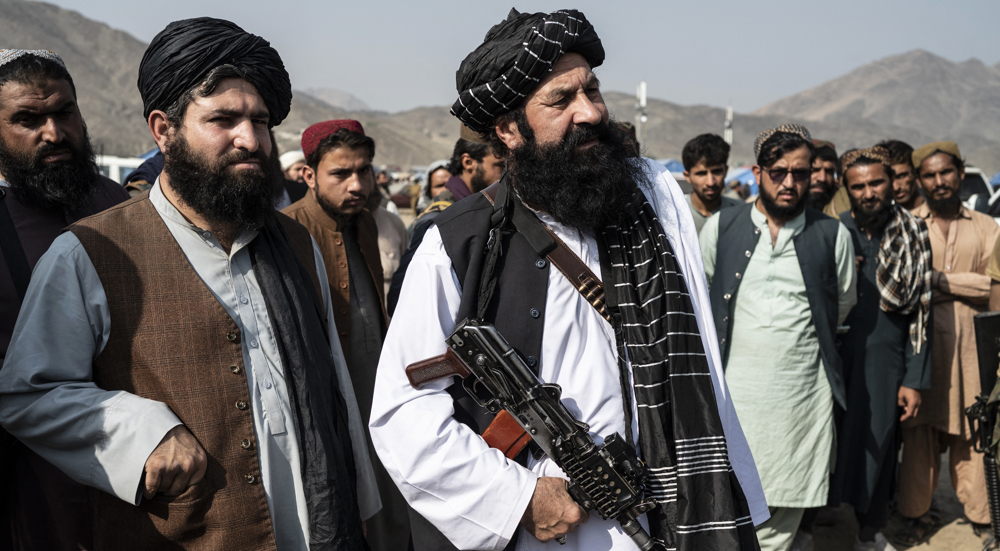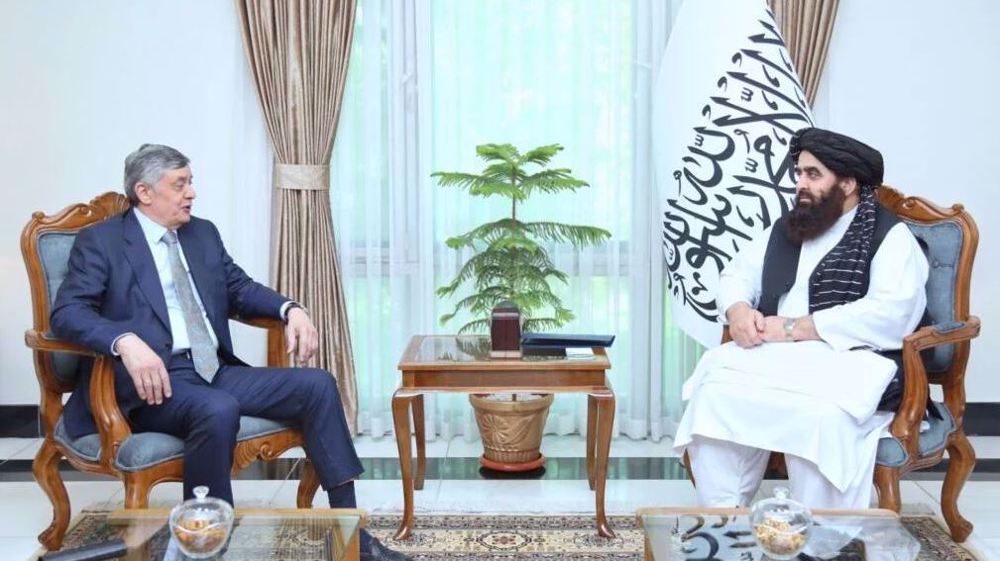Afghanistan signs peace accord with militant group
The Afghan government has inked a landmark peace deal with Gulbuddin Hekmatyar, the leader of a militant group, following lengthy negotiations that could pave the way for him to make a comeback to political life.
“This agreement is signed after two years of negotiations between the High Peace Council (HPC), the leadership of the Afghan Government and the Hizb-i-Islami,” said HPC Deputy Chief Habiba Sorabi, referring to the group headed by Hekmatyar.
“The peace negotiations… have been successfully completed,” she added during the signing ceremony in the capital, Kabul.
In the official ceremony, which was broadcast live on Afghan state television on Thursday, the peace accord was signed by the head of HPC, Ahmad Gilani, whose council has been mediating the negotiations during the past two years, the country’s National Security Advisor Mohammad Hanif Atmar, and Hekmatyar’s representative Amin Karim.
Afghan President Ashraf Ghani and the 69-year-old Hekmatyar must sign the accord if it is to be formalized. No timetable has yet been outlined by the government or the militant group for the formalization.
Hekmatyar, a former anti-Soviet commander in the 1980s who waged a guerrilla war against the Soviet forces occupying Afghanistan, stands accused of leading a militancy that allegedly killed thousands of people, mostly civilians, in Kabul, during the 1992-1996 civil war.
In the wake of Taliban’s reign of terror in 2001, Hekmatyar was designated a “global terrorist” by the US for his alleged links to al-Qaeda and the Taliban militant groups and was hence forced to go into hiding.
If the peace accord is finalized with the country’s second-biggest militant group after Taliban, it would be a symbolic victory for Ghani, who seeks to revive peace talks with the much stronger Taliban, and who has so far failed to bring total peace to the country despite election promises to that effect.
Although the deal offers a ray of new hope for the conflict-ridden Afghanistan, it has sparked revulsion from human rights groups.
“His return will compound the culture of impunity that the Afghan government and its foreign donors have fostered by not pursuing accountability for the many victims of forces commanded by Hekmatyar and other warlords that laid waste to much of the country in the 1990s,” Human Rights Watch said last month.
According to the peace accord, Kabul will offer Hekmatyar legal immunity in “all past political and military proceedings” and will release Hezb-i-Islami detainees.
'Israel booby-trapped walkie-talkies, pagers years before Lebanon blasts'
Gaza Health Ministry calls for urgent intl. help to protect hospitals amid Israeli genocide
Stakes involved in Iran’s partnership with Eurasian Union
VIDEO | Press TV's news headlines
Iran says ‘ready’ to reopen embassy in Syria, holds talks with Damascus
VIDEO | 12 people killed in ammunition factory blast in northwest Turkey
Iraq’s PMU masses resistance forces on border with Syria amid mounting concerns
Israel killed over 700 athletes in Gaza since October 2023













 This makes it easy to access the Press TV website
This makes it easy to access the Press TV website